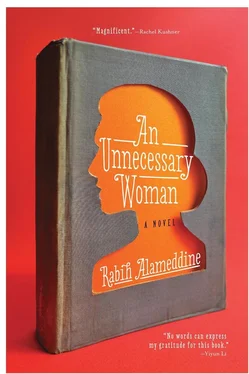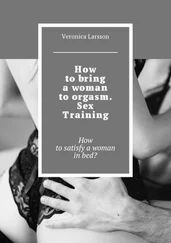I relied on him. A few young men used to trickle into the bookstore before his arrival, solitary and in groups, without any intention of buying books. With a single woman working at the store, a boy could practice flirting, try his luck. I dealt with them by ignoring them. They were harmless, but I found them irritating. My friend Hannah, who often visited me at the store, found them amusing. She didn’t interact with them, but her face lit up whenever one of the lads walked in. Ahmad, on the other hand, considered them offensive. He glared, followed them around until the offenders left the bookstore. One time after he chased two teenagers out, Hannah asked him if he was sure that they were not going to buy anything.
“They only wish to harass respectable ladies,” he said.
“Are you sure respectable ladies don’t wish to be harassed?” she said. “I don’t know about Aaliya here, but maybe I want to talk to a handsome young man, just a few words here and there.”
He looked up at both of us and smiled for the first time that day, his glasses sliding a little along his nose as he did so.
“If you talk to one,” he said, “you wouldn’t be able to get rid of him. He would never leave.”
He left me sometime in 1971 because the traumatic events of Black September the previous fall forced him to reevaluate his priorities. The killings in Jordan probably convinced him that books would not open the door to his cell. In this world, a cause could — a cause could swing prison doors wide open. I mourned his loss.
Even though I believe that the choice of a first book, the book that opens your eyes and quickens your soul, is as involuntary as a first crush, I still wish he’d chosen a different one. He loved The Conformist and saw himself as utterly unlike its protagonist, but in light of what he would mature to become in later years the choice now seems so pathetically predictable, almost a cliché. The Popular Front for the Liberation of Palestine, as Marxist-Leninist as it may have considered itself to be, was a mirror image of Mussolini’s Fasci Italiani di Combattimento. Political parties may argue, yell and insult, punch and kick each other, launch grenades and missiles; it is naught but Narcissus’s silly gesturing at the pool’s image.
Ahmad was sure he was different from Marcello, the protagonist of The Conformist, who has no moral core, who is a follower, who has no independent personality. Ahmad claimed to be an individualist.
There is none more conformist than one who flaunts his individuality.
Let me revisit the events of Black September, not so much to paint the political or historical landscape, important though that may have been in changing Lebanon and sending it into the abyss of civil war, but to show the changes in Ahmad. I wish to paint the transformation of his face.
I am familiar with only the broad strokes of his background. His family hailed from a small village east of Haifa, expelled by the Yishuv during the Nakba of 1948 (his terms, not mine). The village was leveled and erased from all but the villagers’ memories. He was born in Sabra. His family, uncles and aunts, were dispersed across refugee camps in southern Lebanon, Jordan, and the West Bank.
In September 1970, Jordan was in turmoil. Palestinian fedayeen were launching operations from that country, and Israel was retaliating — excessively, as has always been her wont — by bombing Jordan. The Palestinians were practically running the country, a state within a state. Feeling threatened, King Hussein of Jordan declared war upon them. Scores and scores perished. The conflict, the death and dying, lasted until July 1971 with the expulsion of the PLO and thousands of Palestinian fighters to Lebanon.
Lucky us.
During those months, Ahmad changed. He considered the king an Israeli agent, an American lackey. If brother could kill brother, then anyone was suspect, anyone and everyone. He was devastated. Already taciturn, he turned practically mute. He wasn’t sullen as a teenager, but became so. He withdrew unto himself. His skies clouded with black.
But his face.
His face.
Joseph Roth once wrote: “It takes a long time for men to acquire their particular countenances. It is as if they were born without their faces, their foreheads, their noses or their eyes. They acquire all these with the passage of time, and one must be patient; it takes time before everything is properly assembled.”
Ahmad acquired his countenance during Black September. His eyebrows wove together, almost becoming one, giving him an expression of permanent starkness. There was no need for patience before everything was assembled. Once the transformation began, it was quick and hurried. I could almost see each eyebrow hair stitch across the bridge of his nose. Disappointment hid in the tiny furrows of his forehead, fury in the corners of his mouth. The eyes darkened, the skin tightened; he lost what little baby fat he had, and the bones beneath his face grew more defined. The peach fuzz became a beard.
For a while, he still showed up at the bookstore, but he was no longer accessible. It was as if I became part of the problem, someone to mistrust, the other. We shared the same space, but no longer the attentiveness, the empathy, or the companionship. We were like a married couple. I didn’t understand why he kept returning for those few months after Black September, but I wanted him to. I felt he needed me to be there in some inexplicable way.
One day he entered the bookstore in high sulk, and I noted that the transformation was complete. He reeked of testosterone. I also noted that the army pants were no longer the cheap kind. I felt crushed.
I looked him up and down, from the boots to the kaffiyeh. He smirked, turned around, showing me his back, and exited the bookstore.
He left me.
A few years later I went looking for him.
Yes, Ahmad had moved up in the world, out of Sabra, out of Siberia. By 1977, when I knocked on his door, he was living in a lively neighborhood of Beirut, far from the camp. He was still a vivacious picture of youth, but there was nothing peach-fuzzy about him. I had to remind myself that the peach fuzz was already gone the last time I saw him. At twenty-six or twenty-seven, he was in his prime, and amid a frenzied civil war, he was in his milieu: the slacks pressed and tailored, the white shirt fitted and expensive, the face smiling and clean-shaven. A zebra skin on the floor of the entryway greeted me, and it felt as though Ahmad had flayed the prey before breaking his fast that morning. The anteroom was bigger than his mother’s shack.
I was slow to understand, it took me a few minutes, that he was relishing what he considered a role reversal. Of course he’d help me. Whatever I wanted. I had always been kind to him. Sit, sit in the majestic living room, plush seats. I sat ensconced within a room of Balzacian embellishments — a cloverleaf of small Lalique ashtrays, Lladró and Hummel figurines approximating a modernist Nativity scene, a grandfather clock, a rug that might have been twice my age at the time.
He inquired whether I’d had breakfast. “Yes,” I replied, “I ate two days ago.”
“Wonderful,” he cheered, “wonderful.”
Did I care for coffee?
A maid from the Philippines brought out the coffee. I couldn’t disguise my surprise.
“It must be worse where she comes from,” he explained. “They have their own wars.”
One sip and I cut to the point. I told him I wanted to protect myself. I’d had intruders in my home. He lit up, happy to help. He suggested the AK-47: cheap, reliable, never jams, easy to use, lightweight. They were flooding the market; he had three of them in his apartment. I wanted to pay for one. He couldn’t take my money, but I could give him what he’d always wanted.
Читать дальше












